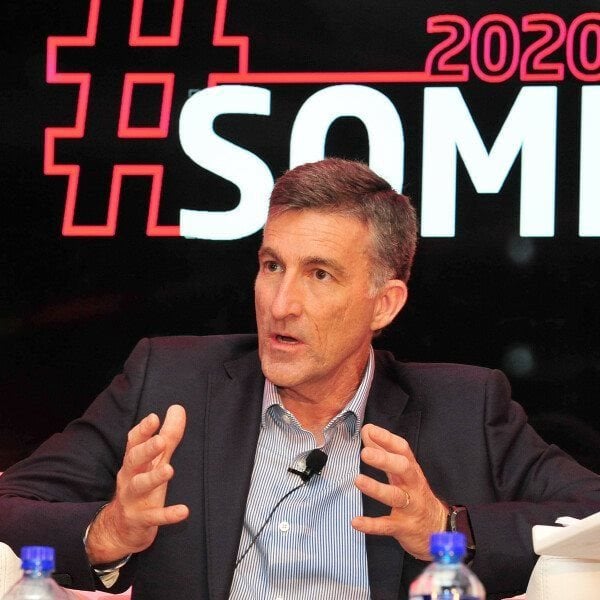
Toyota SA CEO Andrew Kirby
Andrew Kirby delivered his fifth State of the Motor Industry (SOMI) address at the Kyalami Racetrack yesterday. The event, which has become a permanent feature on the local automotive calendar, discussed a number of pertinent topics in the industry, including future mobility, market trends and a couple of announcements in motorsport.
This year’s guest speaker, chief scientist of Toyota Motor Corporation (TMC) and CEO of Toyota Research Institute (TRI) Dr. Gill Pratt mapped out the company’s global plans with regards to electrification and reduction of carbon emissions as well as autonomous driving.
“We believe in battery electric vehicles and we're investing heavily in them, but we also believe that the way to reduce more carbon emissions sooner is to employ diverse solutions. This is particularly important for mitigating climate change because CO2 emissions accumulate globally and remain in the atmosphere for a long time: we need to reduce CO2 as much as possible as soon as possible,” says Dr Pratt.
He outlined that Toyota’s strategy towards the reduction of carbon emissions was premised on three key points:
- Decarbonise as much as possible as quickly as possible
- Enable everyone to reduce carbon emissions as much as possible
- Maximise Carbon Return on Investment (CROI)
Diverse approach
Dr Pratt said: "The greatest reason Toyota believes we should diversify our portfolio of solutions to climate change is that a diverse approach is more likely to work.
"That’s why in December of 2021 Akio Toyoda announced that Toyota will invest approximately $70bn globally in electrified vehicles, including hybrid-petrol vehicles, plug-in hybrid electric vehicles, fuel cell electric vehicles and battery electric vehicles (BEV)."
Akio explained that Toyota wants to prepare as many options as possible for our customers around the world, and he also announced that Toyota plans to roll out 30 BEV models by 2030 and that Lexus is aiming for 100% BEV sales globally by 2035.
All have a part to play
Dr Pratt: "There is also another reason why Toyota believes in a diversified approach to electrification, and it's a human reason.
"We want to give all people around the world – from all walks of life – the best tools to solve the global problem of climate change.
"Different people have different circumstances and different needs. Some live in areas with electrical grids powered by renewables, others live in areas that will be powered by fossil fuels for some time.
"Some have convenient charging stations at home and others live in cities where that is more difficult.
"Some are wealthy. Most are not. As a result, what is best for the average person or for any particular person is not best for every person: we need to supply the world with a diversity of tools… Toyota believes the best strategy today for reducing greenhouse gases is to offer a diverse portfolio of hybrid vehicles, plug-in hybrid vehicles, battery electric vehicles and fuel cell vehicles."
Carbon return on investment
Dr Pratt concluded: "Now let me provide a third reason to believe in a diverse approach and this is an economic reason. The manufacture of products that reduce carbon emissions often emits some carbon as well, and this is generally true for solar cells and batteries.
"For example, a way to measure this phenomenon is to think of it like an investment: a carbon investment where we emit some carbon today in order to save more carbon from being emitted in the future.
"The term for this is CROI (carbon return on investment) and here is where it gets interesting… for batteries as a whole to reduce the most net carbon we should try and maximise the CROI of every battery cell produced.
"If we produce a battery cell and never use it, its CROI will be zero, and it will end up making climate change worse. On the other hand, if we fully use the battery cell to reduce carbon, its CROI will be strongly positive, helping mitigate climate change."





































